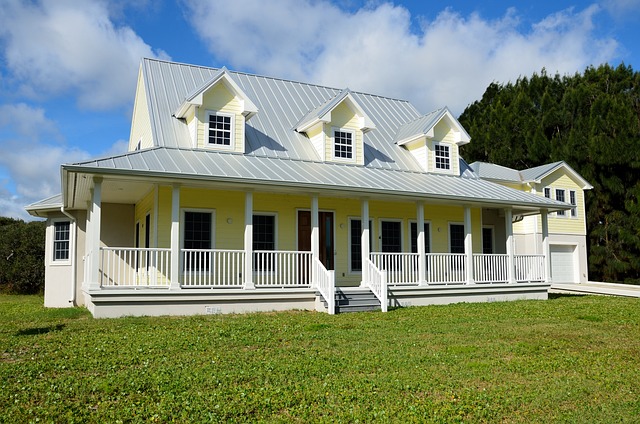Executive Condominiums (ECs) in Singapore serve as a critical stepping stone for middle-income earners towards affordable homeownership. These dwellings offer a blend of condo living with the option to upgrade to public housing in the future. The EC market is diverse and dynamic, influenced by factors like location, age of development, and broader economic conditions, which in turn affect pricing and investment potential. Prospective buyers must stay informed on market trends, including government support for affordable housing, to make smart purchasing decisions. Historical data indicates that EC prices tend to rise over time, correlating with broader housing market trends and reflecting families' upgrading paths since their introduction in the 1990s. Recent buying patterns suggest that economic indicators, policy changes, demographic shifts, and geopolitical events all play significant roles in shaping EC prices and market dynamics. The interplay between government policies, such as housing schemes and land sales strategies, with private sector demand, creates a nuanced yet predictable environment for those considering the purchase of an Executive Condo in Singapore. Keywords: Buying Executive Condo in Singapore, affordable homeownership, condo living, market dynamics, investment potential, government support, historical price analysis, economic indicators, policy changes.
Exploring the intricacies of Singapore’s property market, this article offers a comprehensive analysis of Executive Condominium (EC) price trends. From the historical trajectory of EC unit purchases to the influence of government policies and economic indicators, we delve into the factors shaping these affordable yet coveted homes. With a focus on understanding the EC landscape, analyzing quarterly resale prices, and predicting future market values, prospective buyers and investors alike will gain valuable insights into the dynamics of buying an Executive Condo in Singapore. This exploration also covers geographic variations, the impact of socioeconomic shifts, and the role of developer reputation, unit features, and financing options in pricing. Additionally, we examine how construction costs, migration patterns, and supply-demand balance affect EC prices, providing a well-rounded perspective on this unique segment of Singapore’s housing market.
- Understanding the Executive Condominium (EC) Landscape in Singapore
- Historical Price Trends of Buying Executive Condo Units in Singapore
- Factors Influencing EC Prices in Recent Years
- Analysis of Quarterly EC Resale Prices in Singapor
- The Impact of Government Policies on EC Pricing
Understanding the Executive Condominium (EC) Landscape in Singapore

In Singapore, the Executive Condominium (EC) landscape presents a unique segment within the property market that caters to both singles and families looking for a combination of condo facilities and the possibility of upgrading to a public housing flat in the future. Buying an EC is an attractive option for many as it offers more space and amenities compared to resale flats, yet carries a lower price point than private condominiums. These properties are designed to serve the middle-income group, allowing them to enjoy the benefits of condo living without straining their finances. Prospective buyers should consider the diverse range of ECs available across various regions in Singapore, each offering unique features that align with different lifestyles and preferences.
The evolution of the EC market in Singapore reflects the government’s commitment to providing affordable housing options. Over recent years, the pricing trends for ECs have been influenced by factors such as location desirability, development maturity, and the overall economic climate. Potential buyers interested in purchasing an EC should monitor these trends closely, as they can impact both the resale value of existing units and the appreciation potential of new launches. The decision to invest in an EC is a significant one, and staying informed about market conditions is crucial for those looking to capitalize on the opportunities within this dynamic sector of Singapore’s property landscape.
Historical Price Trends of Buying Executive Condo Units in Singapore

Over the years, the buying trends for Executive Condos (ECs) in Singapore have exhibited a dynamic pattern reflective of the broader housing market’s fluctuations. Historically, EC prices have shown a propensity to rise over time, driven by factors such as economic growth, population dynamics, and government policies aimed at balancing public housing supply. These trends often mirror the performance of the general property market, with ECs providing an accessible option for upgrading Singaporean families. The introduction of ECs in the early 1990s marked a significant milestone in Singapore’s public-private housing partnership, and since then, their prices have been subject to cyclical movements influenced by interest rates, inflation, and consumer confidence.
In analyzing the historical price trends of EC units, it is evident that prices have generally trended upwards, with some periods experiencing more pronounced growth. For instance, the late 1990s and early 2000s saw a surge in demand for ECs, leading to a rapid increase in their prices. Similarly, following the global financial crisis of 2008, there was a recovery period where prices appreciated significantly. These trends underscore the importance of monitoring macroeconomic indicators and policy changes that can impact the affordability and desirability of these units. Prospective buyers looking to purchase an EC should consider how past price trends may influence future market behavior, ensuring they make informed decisions aligned with their long-term housing objectives.
Factors Influencing EC Prices in Recent Years

In recent years, the prices of Buying Executive Condominiums (ECs) in Singapore have been influenced by a multitude of interrelated factors. The initial price trend of ECs was buoyed by strong demand, fueled by a combination of young couples and multi-generational families looking for larger living spaces with the option to subside their lease later should they choose to purchase a public flat. The government’s housing policies play a significant role in shaping these trends. Policies such as the introduction of the Family Nuances Beyond Sixty (FNS) scheme, which allows EC residents aged fifty-five and above to buy a resale flat at subsidized prices when their lease expires, have influenced buying decisions, thereby affecting market prices.
Additionally, economic factors, including inflation rates and the overall state of the economy, have a profound impact on the purchasing power of potential buyers. Monetary policies set by the Monetary Authority of Singapore (MAS), such as changes in interest rates or loan-to-value limits, can affect mortgage rates, which in turn influence the affordability of ECs. The availability of financing options and the attractiveness of alternative investments also sway buyer interest and demand, consequently impacting the pricing dynamics of new EC launches. Moreover, geopolitical events, market sentiments, and population growth trends further contribute to the evolving landscape of EC prices in Singapore. These elements create a complex environment that developers and buyers alike must navigate when considering a purchase in this segment of the property market.
Analysis of Quarterly EC Resale Prices in Singapor

In the dynamic Singapore property market, the buying trends for Executive Condominiums (ECs) have shown a distinct pattern when analyzing quarterly resale prices. Prospective buyers and investors often scrutinize these trends to make informed decisions. The resale prices of ECs in Singapore exhibit seasonal fluctuations influenced by various factors such as economic conditions, population growth, and changes in housing policies. For instance, the prices tend to rise in quarters where there is a higher demand for larger living spaces, reflecting the changing needs of families who often form the majority of EC buyers. Additionally, government interventions like adjustments to loan eligibility criteria can impact resale prices, as seen in past quarters. By examining these quarterly price trends, one can discern the health and direction of the market for buying Executive Condos, which is a unique segment offering the benefits of both public and private housing. This analysis is crucial for buyers looking to balance affordability with the desirability of condo living in Singapore’s vibrant communities.
The Impact of Government Policies on EC Pricing

In Singapore, the pricing of Executive Condos (ECs) is influenced by a confluence of factors, with government policies playing a pivotal role in shaping the market. The Housing and Development Board (HDB) introduces policies that dictate eligibility criteria for purchasing an EC, which include restrictions on citizenship and income ceiling requirements. These policies are designed to ensure that ECs remain accessible primarily to first-time homeowners who can later upgrade to a private property when they meet certain conditions. The introduction of the Multi-Generation Flat (MGF) scheme, which allows extended families to live under one roof, has also impacted the demand for larger EC units, potentially influencing their pricing upward as they cater to this growing segment of the population.
Moreover, the Singapore government’s strategic planning in land sales and the subsequent release of EC sites contribute significantly to the supply dynamics. Through the Government Land Sales (GLS) program, the Urban Redevelopment Authority (URA) regulates the availability of land for residential development. The timing and location of these releases are carefully calibrated to manage price trends and ensure a balanced property market. Consequently, developers must assess the potential demand and competition when bidding for these sites, which in turn affects the pricing of new EC launches. These factors underscore the intricate relationship between government policies and Executive Condo pricing, making the housing market in Singapore both predictable and responsive to policy adjustments.
Singapore’s Executive Condominium (EC) market presents a dynamic landscape for property investment, with trends and prices influenced by a variety of factors. This article has delved into the multifaceted nature of EC pricing, from historical patterns to the effects of recent years’ influencers. By examining quarterly resale prices and the impact of government policies, buyers can gain a deeper understanding of the EC market. It is clear that purchasing an Executive Condo in Singapore requires careful consideration of both past trends and current economic indicators. As the market continues to evolve, prospective buyers should remain informed and adaptable to navigate this unique segment within the nation’s property ecosystem.



